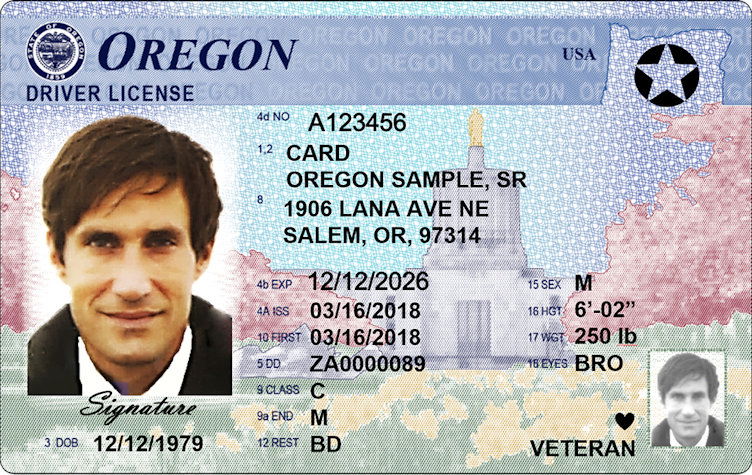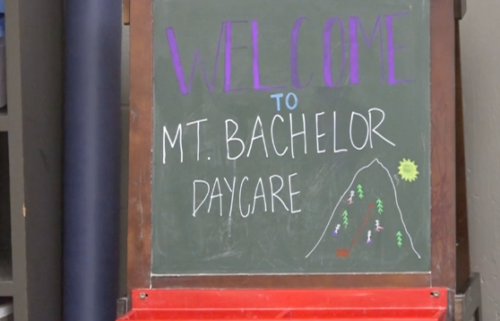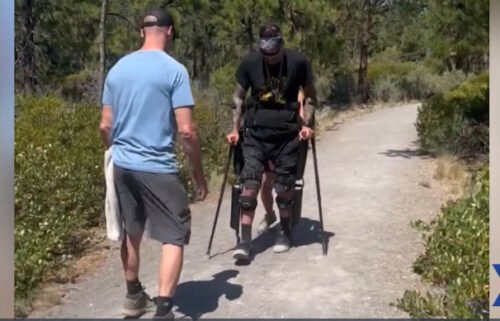Gov. Brown issues order forgiving uncollected traffic fines, fees that led to nearly 7,000 Oregon license suspensions

Law was changed 2 years ago - but not retroactively
SALEM, Ore. (KTVZ) — Gov. Kate Brown issued an order Wednesday that forgives uncollected court fines and fees associated with certain traffic violation cases that resulted in solely debt-based driver’s license suspensions.
She said the action creates a path for nearly 7,000 Oregonians to seek reinstatement of their suspended driver’s licenses through the DMV, and removes the associated collateral burdens that disproportionately impacted low-income Oregonians and people of color from a state statute that has since been rewritten.
In 2020, acknowledging that suspending driver’s licenses for nonpayment can set off a cascade of compounding harms impacting people’s lives and livelihoods, particularly for low-income Oregonians, Governor Brown signed into law House Bill 4210.
While that legislation prohibited license suspensions for nonpayment of traffic fines moving forward, it left existing nonpayment-related license suspensions in place. Governor Brown’s action today granted these individuals a fresh start, removing a key financial barrier blocking many from being able to lawfully drive.
“The inability to pay a traffic fine should not deprive a person of the ability to lawfully drive to work, school, health care appointments, or other locations to meet their daily needs,” said Governor Brown. “We know that suspending driver’s licenses for unpaid traffic fines is bad public policy — it is inequitable, ineffective, and makes it harder for low-income Oregonians to get ahead. My action today will help alleviate the burden of legacy driver’s license suspensions imposed under a statutory scheme that the legislature has since overhauled.”
Governor Brown’s remission order affects only those people who were sanctioned in traffic violation cases over two years ago, prior to the effective date of HB 4210. The order expressly excludes misdemeanor or felony traffic offense cases, and it does not forgive restitution and compensatory fines owed to victims. Beyond nonpayment-related sanctions, none of the affected individuals have suspended licenses due to public safety-related sanctions.
Approximately $1.8 million was remitted from circuit court cases in Oregon. The total amount of unpaid fines and fees that was remitted from cases in Oregon municipal and justice courts is unknown because neither the DMV nor the Oregon Judicial Department has access to this information.
The vast majority of the fines and fees forgiven by the governor’s order are considered uncollectible debt. According to OJD, about 84% of the liquidated debt on its books is uncollectible.
Much of the debt forgiven by the governor’s remission order is held by OJD. Their collections data show that most people who can afford to pay their violation fines do so right away, but for cases like those included in the governor’s order, collections rates drop to roughly 10% in the second year of delinquency, and to 4% or lower in year three and beyond.
Much of the debt forgiven by the governor’s remission order has remained unpaid for three or more years and, as a result, is considered uncollectible.
More information about the remission order can be found here.
--
News release from ACLU of Oregon Partnership for Safety & Justice:
Public safety advocates praise Gov. Brown for canceling traffic fines and fees that create barriers for historically disenfranchised Oregonians
PORTLAND, Ore. -- Following the announcement that Gov. Kate Brown is forgiving Oregonians’ traffic fines and fees that have resulted in driver’s license suspensions and increased barriers for low-come people and people of color, leading social justice advocates issued the following statements praising her for her continued leadership on criminal legal system reforms.
Sandy Chung, ACLU of Oregon Executive Director
“Debt-based drivers license restrictions cause compounding harm to low-income people and people of color, while not improving public safety or government revenue.
People of color are disproportionately targeted in traffic enforcement meaning they are more likely to be ticketed and receive a traffic fine. Persistent racial discrimination in public and private life, as well as enduring racial disparity in economic opportunity, means people of color are more likely to be low income.
This means that it is more widespread for people of color to have a driver’s license suspension due to inability to pay a ticket. They are more likely to be trapped in a cycle of debt, punishment and restricted freedoms than wealthier and whiter people.
These racial and economic injustices are addressed today by the Governor’s pardon. Approximately 7,000 Oregonians will have a fresh start — and a better chance at schooling, work and housing. This will uplift communities across Oregon.”
Shannon Wight, Partnership for Safety & Justice Deputy Director
“The Governor’s action is especially significant because it’s part of a larger movement in Oregon and the country to bring economic justice to our criminal justice system. Last year we became the second state in the nation to eliminate fees for people on probation and parole for the same reason: We can’t have a justice system that puts families in economic debt and call that public safety. By eliminating fees, the Governor is supporting true community safety because low-income people will no longer have to choose between paying fines or buying groceries. Hopefully the legislature and future governors will continue to take similar actions that continue this work.”
Paul Solomon, Sponsors Executive Director
“One of the most important factors in someone successfully returning home from prison or jail is getting a stable job. Now more than ever, we need to do everything we can to remove barriers to economic stability for low-income individuals. With staggering unemployment rates, one unpaid ticket could be the start of decades of economic struggles. True community safety starts with people having the resources they need to rebuild their lives.”



